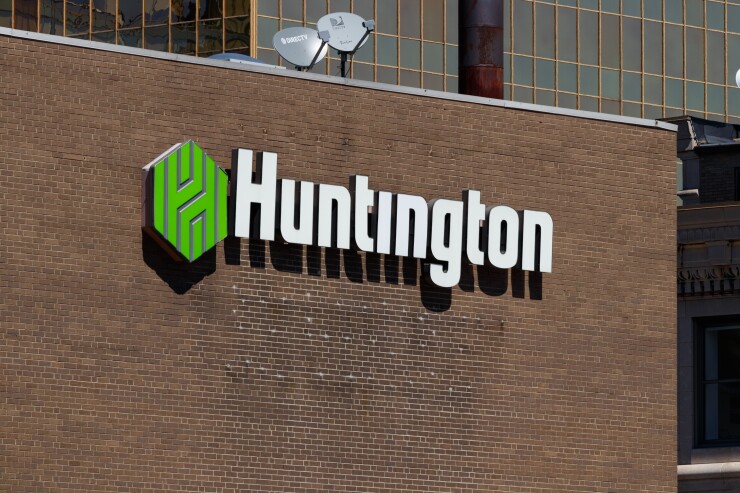Huntington Bancshares, which said that its acquisition of TCF Financial contributed to an increase in certain categories of Scope 3 emissions, pledged to take steps with its customers and suppliers to reduce their combined impact on climate change.
Huntington's carbon dioxide equivalents from supply-chain activities, part of what are known as Scope 3 emissions, climbed from 2020 by 24% to 89,784 metric tons last year, according to a report that the Columbus, Ohio, bank released Wednesday.
"Huntington recognizes that we need to look beyond our operational footprint to make a true difference for our environment," Rebecca Karason, the bank's environmental strategy and sustainability director, said in the report. "We are committed to evaluating and understanding our Scope 3 value chain emissions so we can partner with our suppliers and customers to reduce our collective impact."

The $179 billion-asset bank also said that it began to focus last year on "understanding and analyzing the magnitude of our value chain emissions, which include our customers' emissions."
A Huntington spokesperson said in an email that the bank's $22 billion acquisition of TCF last year played a "major role" in the value chain emissions increase, as did efforts to broaden and standardize reporting.
Scope 3 emissions refer to carbon emissions that are the result of activities from assets not controlled or owned by the reporting company.
While Huntington has not yet reported all of its Scope 3 emissions, data in the report released this week focused on some of them.
The emissions measured in the report include those related to purchased goods and services, capital goods, upstream transportation and distribution, waste from operations, business travel and employee commuting, according to the bank's spokesperson.
"There is an ongoing effort to calculate financed emissions, which we plan to publicly disclose within the next two years," the spokesperson said.
Huntington is part of a relatively small but growing group of banks that have started taking steps to report their Scope 3 emissions to the public.
The majority of 45 large banks surveyed in May by the consulting firm Bain
Banks are facing pressure from Democrats and clean-energy advocates to make more disclosures about their contributions to climate change. In March, the Securities and Exchange Commission unveiled a proposal that seeks to mandate emissions disclosures for publicly listed corporations.
At the same time, Republicans and advocates for the fossil-fuel industry are
With the industry facing increasing pressure around climate disclosures, a new report highlights the challenges in measuring financed emissions as well as the potential payoff for banks that choose to be proactive.
A year ago, Huntington began disclosing emissions based on standards set by the Task Force on Climate-related Financial Disclosures. This year, Huntington joined other banks in joining the Partnership for Carbon Accounting Financials, a global emissions disclosure initiative.
In its annual report on environmental, social and governance matters,
Huntington also highlighted its energy efficiency measures. Huntington's building energy consumption has fallen 12.3% since 2019, even as renewable energy only accounts for 1% of power usage, according to the bank's report.
Last November, Huntington expanded the role of George Gonczar, the bank's head of global risk assessment, to include a position as climate risk director. Huntington also promoted Karason to the role of environmental strategy and sustainability director.






